CONTENT

A tired me after an 18 hour vocal session. Woke up at 6:00AM in Philadelphia, PA, flew to Orlando, FL, headed right to the studio, and tracked until the sun came up again.
INTRODUCTION
If you have already watched the intro video , you may skip this section.
Hey guys!
When I was learning how to mix, I was consistently searching for that sound to make my mixes radio ready. With so many tools available to me in my DAW, it was easy for me to quickly dial in a mix that sounded decent. However, it always lacked those missing elements: clarity, punch, and life.
Relying on presets got me nowhere and watching countless hours of YouTube videos put me in information overload. The advice trust your ears only led to me realizing that my mixes sucked without offering any solution to my problem.
Sound familiar?
Im Tom Camp, the founder of Digital Recording School where artists, producers, and engineers go to learn how to achieve radio ready recordings. I have spent years cramming my brain full of information, following many of my mentors advice, and mixing song after song until I had that big aha moment. I was missing an extremely important element during the time I was trying to perfect my mixes.
A perfect mix can ONLY be built on a perfect foundation, the same way that a house without a solid foundation will crumble and fall to the ground. Without applying the fundamentals of digital audio theory, proper gain structure, and correctly applying the tools in my DAW, my mixes were crumbling.
Through years of trial and error, asking questions, and learning the techniques of other engineers, Ive assembled my own set of rules that I like to call The Gain Changer. Now be warned, these rules may not work for everyone. Some experienced engineers may write this off as This is not how I do things, without even trying it and that is okay.
If you are confident in your own process and your mixes sound the way you want them to, then great! This eBook and mini course may not be for you. You may have a grasp on these things and are looking for more advanced knowledge on mixing which will come later.
What I can tell you is that The Gain Changer has helped me, my colleagues, and countless other students that I have met along the way to give them their aha moments. Ultimately, this has assisted them in building a better foundation to a better mix. It will do the same for you .
The Gain Changer will not be the end point in creating a radio ready mix, but it is the start. It will set you up with a foundation on which to build your mixing techniques. A lot of this stuff may seem overly technical and overwhelming at first, but I promise that you will benefit from it greatly.
Throughout this mini-course, you will be taught about why I use The Gain Changer and how to implement it. You will be tested on your knowledge and given a challenge at the end of this course to gauge your progress. I will be available every step of the way to answer any, and all of your questions. I am always excited to help.
Lets begin!
THE GAIN CHANGER
PROBLEMS
Gain staging is the first piece of The Gain Changer. It is the process of optimizing everything in your system dealing with volume. Your system can be anything from a large format analog console in a million dollar studio, to your DAW (digital audio workstation) on your computer (i.e. Pro Tools, Ableton, Logic, Reaper, etc.)
*Proper gain staging will never go away regardless of what others say. See the section on 32 bit float at the end of this eBook for more information at the end of the book.*
Lets identify some common issues that occur when you DO NOT apply proper gain staging.
 1. You cant turn your fader up any more, and the sound isnt loud enough in the mix.
1. You cant turn your fader up any more, and the sound isnt loud enough in the mix.
 2. You cant turn your speaker volume up anymore, and your mix isnt loud enough to your ears.
2. You cant turn your speaker volume up anymore, and your mix isnt loud enough to your ears.
 3. You see red ANYWHERE or EVERYWHERE (channel meter, plugin meter, master meter), and things sound brittle and harsh.
3. You see red ANYWHERE or EVERYWHERE (channel meter, plugin meter, master meter), and things sound brittle and harsh.
 4. Your meters look great when you start mixing, but over time you always end up overdriving your meters (volume creeps).
4. Your meters look great when you start mixing, but over time you always end up overdriving your meters (volume creeps).
Sound familiar? ..Poor gain staging!

Gain Staging During Recording If you are recording a microphone, your gain staging begins at the source. The loudness of that source (guitar amp, vocalist, snare drum, etc.) is outputting a certain amount of gain that is hitting the capsule of your microphone. What happens when your source is causing distortion at the microphone capsule? YOU LOSE. The battle is over and no matter what you do... that recording is tainted. Poor gain staging. You need to fix the issue at THAT point in the gain staging process: choose a different mic, apply the pad on the microphone, move the source back, but FIX IT. This is the beginning of your gain staging adventure. Whats next? Microphone Preamp, possibly a fader or a knob. Next, you are looking at your multi-track, etc. Gain staging goes all the way from the source to the speakers.
Analog and digital have their own set of rules. You can get away with things in analog that you cannot in digital and vice versa.
Gain staging is the first step to building a solid foundation of your mix and it applies to ANY and ALL mixes you will ever do.
Digital audio theory is the basis for a lot of this, but you dont necessarily need a Masters Degree to understand it.
To begin, lets identify HOW MANY gain stages there are in a single audio file flowing through a DAW session.
Gain Staging Examples
SIGNAL FLOW
Scenario 1: NO Processing, NO Audio Subgroups
 1. The FILE itself. This could be a recorded sound, maybe a sample, or even a file you just bounced from your virtual synth. How loud is it? Do you know? How can you tell?
1. The FILE itself. This could be a recorded sound, maybe a sample, or even a file you just bounced from your virtual synth. How loud is it? Do you know? How can you tell?
 2. The FADER on the channel in your DAW controlling that sound.
2. The FADER on the channel in your DAW controlling that sound.
 3. The MASTER FADER
3. The MASTER FADER
 4. SPEAKER VOLUME
4. SPEAKER VOLUME
Scenario 2 Audio Subgroups
 1. The FILE itself.
1. The FILE itself.
 2. The FADER on the channel in your DAW controlling that sound.
2. The FADER on the channel in your DAW controlling that sound.
 3. The FADER on the audio subgroup
3. The FADER on the audio subgroup
 4. The MASTER FADER
4. The MASTER FADER
 5. SPEAKER VOLUME
5. SPEAKER VOLUME
Scenario 3 With an EQ AND Audio Subgroups
 1. The FILE itself
1. The FILE itself
 2. The gain going INTO and (depending on the plugin) going OUT of the EQ
2. The gain going INTO and (depending on the plugin) going OUT of the EQ

Next page
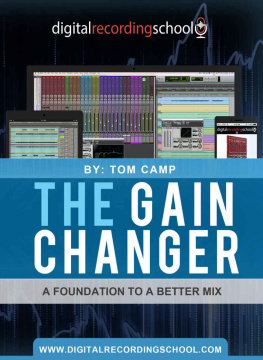
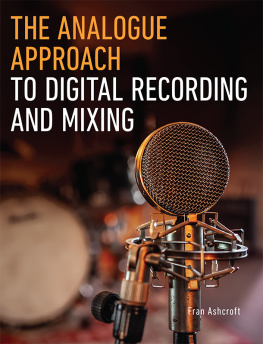
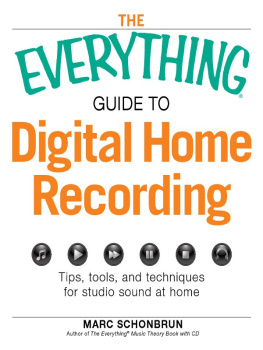
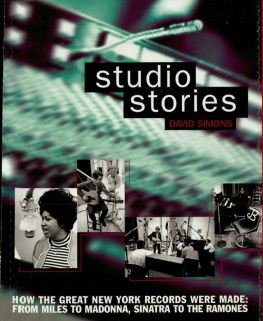
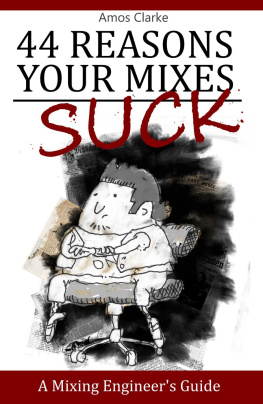

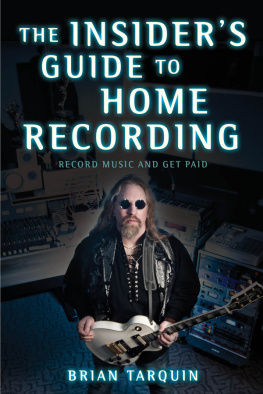
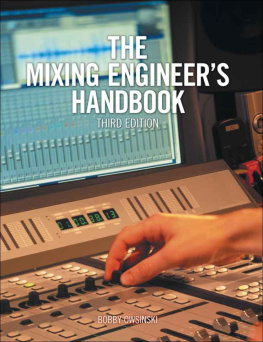
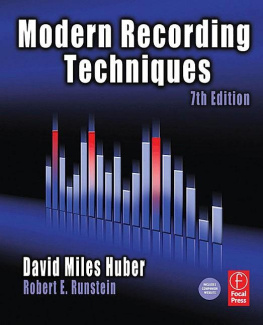
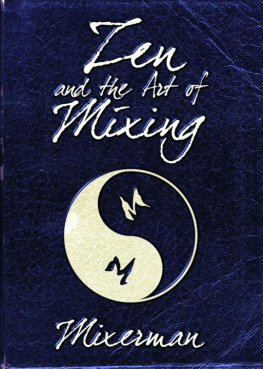

 1. You cant turn your fader up any more, and the sound isnt loud enough in the mix.
1. You cant turn your fader up any more, and the sound isnt loud enough in the mix. Gain Staging During Recording If you are recording a microphone, your gain staging begins at the source. The loudness of that source (guitar amp, vocalist, snare drum, etc.) is outputting a certain amount of gain that is hitting the capsule of your microphone. What happens when your source is causing distortion at the microphone capsule? YOU LOSE. The battle is over and no matter what you do... that recording is tainted. Poor gain staging. You need to fix the issue at THAT point in the gain staging process: choose a different mic, apply the pad on the microphone, move the source back, but FIX IT. This is the beginning of your gain staging adventure. Whats next? Microphone Preamp, possibly a fader or a knob. Next, you are looking at your multi-track, etc. Gain staging goes all the way from the source to the speakers.
Gain Staging During Recording If you are recording a microphone, your gain staging begins at the source. The loudness of that source (guitar amp, vocalist, snare drum, etc.) is outputting a certain amount of gain that is hitting the capsule of your microphone. What happens when your source is causing distortion at the microphone capsule? YOU LOSE. The battle is over and no matter what you do... that recording is tainted. Poor gain staging. You need to fix the issue at THAT point in the gain staging process: choose a different mic, apply the pad on the microphone, move the source back, but FIX IT. This is the beginning of your gain staging adventure. Whats next? Microphone Preamp, possibly a fader or a knob. Next, you are looking at your multi-track, etc. Gain staging goes all the way from the source to the speakers.